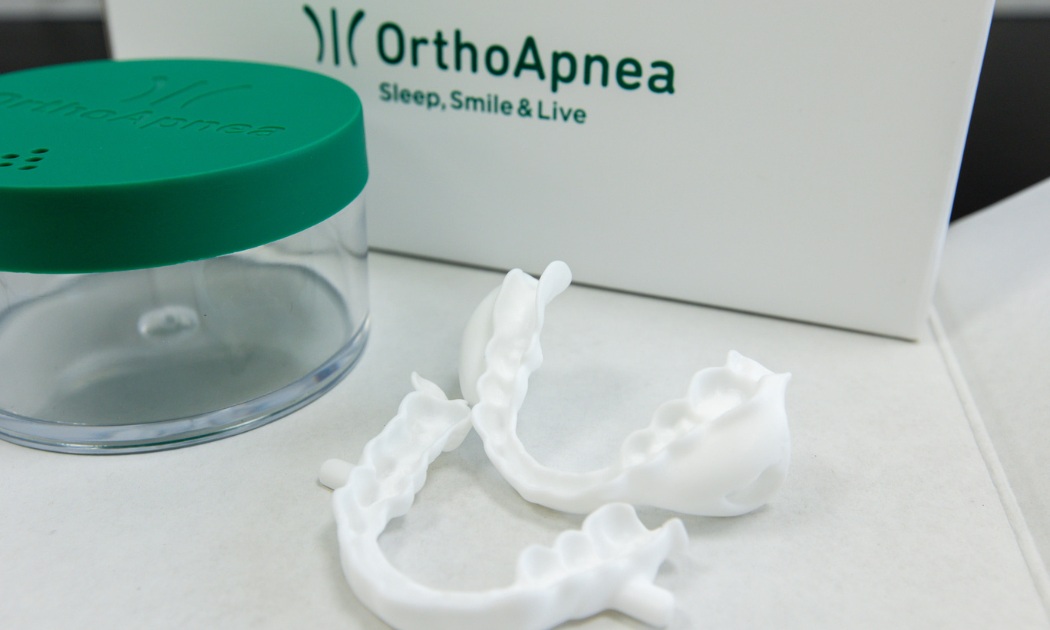Anti-Snoring Devices Questions: Sleep Apnea Answers

Are you tired of being woken up by the thunderous snores coming from your partner? Or perhaps you’re the culprit, and those sleepless nights have left you feeling exhausted and irritable. Either way, snoring can be a real nuisance that disrupts not only your sleep but also your relationship. But what if it’s more than just snoring? What if it’s sleep apnea? Can the anti-snoring devices in our Brisbane clinic help? In this blog post, we’ll explore some common questions about sleep apnea and provide answers to help you understand this condition better. So grab a cup of coffee (or maybe a napkin for those who tend to drool in their sleep), and let’s dive into the world of anti-snoring devices and find out all there is to know about sleep apnea …
Can you Die from Sleep Apnea?
Sleep apnea is a serious sleep disorder that affects millions of people worldwide. It occurs when a person’s breathing repeatedly stops and starts during sleep, often due to the muscles in the throat failing to keep the airway open. While it may seem like just a nuisance, sleep apnea can have severe consequences if left untreated.
One of the most pressing concerns for those with sleep apnea is whether or not it can be life-threatening. The answer is yes – untreated sleep apnea can indeed lead to serious health complications and even death.
The interrupted breathing patterns caused by sleep apnea deprive the body of oxygen, putting immense strain on vital organs such as the heart and brain. Over time, this lack of oxygen can contribute to an increased risk of cardiovascular diseases such as high blood pressure, stroke, and heart attack.
In addition to cardiovascular risks, untreated sleep apnea has also been linked to other potentially fatal conditions such as diabetes and obesity-related complications. Moreover, individuals with severe forms of sleep apnea are at higher risk for accidents while driving or operating machinery due to daytime drowsiness.
It’s important to recognise the signs and symptoms of sleep apnea and seek medical attention promptly if you suspect you or someone you know may be affected. With proper diagnosis and treatment options available today – including anti-snoring devices – managing this condition becomes more manageable than ever before.
Is Sleep Apnea Hereditary or Genetic?
This is a common question that many people have when it comes to understanding the causes of this sleep disorder. While there is no definitive answer, studies suggest that genetics may play a role in the development of sleep apnea.
Research has shown that certain factors, such as obesity and anatomical abnormalities, can contribute to the occurrence of sleep apnea. These factors can be influenced by both genetic and environmental factors. For example, if you have family members who suffer from obesity or have anatomical abnormalities like a narrow airway or enlarged tonsils, you may be at an increased risk of developing sleep apnea.
However, it’s important to note that having a family history of sleep apnea does not mean you will definitely develop the condition. Other lifestyle factors such as smoking, alcohol consumption, and poor sleeping habits can also contribute to its onset.
While there appears to be some evidence suggesting a genetic component to sleep apnea, it is likely a combination of both genetic and environmental factors that contribute to its development. If you suspect you may have sleep apnea or have concerns about your risk due to your family history, it is best to consult with a medical professional for further evaluation and guidance.
Can Sleep Apnea cause Weight Gain?
Sleep apnea is a sleep disorder characterised by pauses in breathing, which can occur multiple times throughout the night. While it may not be immediately obvious, there is indeed a connection between sleep apnea and weight gain.
One reason for this link is that when you have sleep apnea, your body’s oxygen levels drop during these breathing pauses. This triggers a stress response in the body, leading to an increase in cortisol levels. Cortisol is known as the “stress hormone” and can contribute to weight gain, particularly around the abdominal area.
Additionally, disrupted sleep patterns caused by sleep apnea can lead to hormonal imbalances that affect appetite regulation. Ghrelin, a hormone responsible for stimulating hunger, tends to be elevated in individuals with sleep apnea. On the other hand, leptin, which signals feelings of fullness, may be decreased. This imbalance can result in increased cravings and overeating.
Furthermore, fatigue caused by poor-quality sleep can make it difficult to engage in regular exercise or maintain an active lifestyle. Physical activity plays a vital role in managing weight and promoting overall health.
It’s important to note that not everyone with sleep apnea will experience weight gain; however, if you are overweight or obese and snore loudly or experience excessive daytime drowsiness – common symptoms of sleep apnea – it’s worth discussing with your healthcare provider.
Remember that addressing any underlying causes of weight gain alongside treating your sleep apnea can lead to improved overall health and well-being.
Can I Lose my Driver’s Licence because of Sleep Apnoea?
This is a question that many people with sleep apnoea / apnea may have. The answer is not a straightforward yes or no, as it depends on various factors.
Sleep apnea can potentially affect your ability to drive safely, especially if it goes untreated. The excessive daytime sleepiness and fatigue caused by the condition can impair your concentration and reaction time while behind the wheel.
In some cases, individuals with severe sleep apnea may be required to undergo a medical evaluation before their driving privileges are renewed or granted. This evaluation typically involves assessing how well their condition is managed and determining whether they pose a risk on the road.
If you have been diagnosed with sleep apnea, it’s important to follow your treatment plan diligently to minimise any potential risks associated with driving. This often involves using continuous positive airway pressure (CPAP) therapy or other prescribed devices to improve airflow during sleep.
Remember, losing your driver’s license due to sleep apnea is not meant to punish you but rather ensure the safety of yourself and others on the road. It’s always best to prioritise your health and seek appropriate treatment for this manageable condition.

Does my Child have Sleep Apnea: Signs to Observe
It’s a question that many parents may find themselves asking, especially if their child is experiencing certain symptoms or behaviors during sleep. While snoring can be a common occurrence in children, it doesn’t necessarily mean they have sleep apnea. However, there are some signs to observe that may indicate the presence of this condition.
One sign to look out for is frequent pauses in breathing during sleep. If you notice your child consistently stopping and starting their breathing pattern throughout the night, it could be a red flag for sleep apnea. Additionally, restless tossing and turning or waking up frequently throughout the night can also be indicative of this condition.
Other signs to observe include mouth breathing, bedwetting beyond an age-appropriate stage, difficulty concentrating or behaving properly during the day due to poor quality of sleep at night.
If you suspect that your child may have sleep apnea based on these signs, it’s important to consult with a healthcare professional who specialises in paediatric sleep disorders. They will be able to conduct further evaluations and tests to determine whether or not your child has sleep apnea and recommend appropriate treatment options if necessary.
Remember: while snoring alone does not always signify sleep apnea in children, being aware of other potential symptoms can help identify any underlying issues that may need attention for better overall health and well-being.
Can you have Sleep Apnea without Snoring?
It’s a common question among individuals who are concerned about their quality of sleep. While snoring is often associated with sleep apnea, it’s not always present in every case.
Sleep apnea is a disorder characterised by pauses in breathing or shallow breaths during sleep. These interruptions can occur multiple times throughout the night and result in poor-quality sleep and daytime fatigue. Snoring is just one symptom that may be present in individuals with sleep apnea.
In fact, some people with sleep apnea may not snore at all. This can make it difficult to recognise the condition, as loud snoring is often seen as a key indicator. However, there are other signs to watch out for.
If you frequently wake up gasping for air or experience morning headaches, these could be potential signs of sleep apnea. Other symptoms include excessive daytime drowsiness, difficulty concentrating, and irritability.
It’s important to note that if you suspect you have sleep apnea but don’t snore, consulting a healthcare professional is crucial for an accurate diagnosis. They will conduct further evaluations such as a polysomnography (sleep study) to determine if you indeed have this condition.
Remember, diagnosing and treating sleep apnea is essential for your overall health and well-being. So even if you don’t snore loudly at night but experience symptoms related to poor-quality sleep, seeking medical advice should still be a priority
Do I have Sleep Apnea: Questions to ask Yourself – and your Partner
Do you often wake up feeling tired even after a full night’s sleep? Have you noticed yourself gasping for air during the night or experiencing sudden awakenings accompanied by choking or snorting sounds? These could be signs that you might have sleep apnea. While it is always best to consult with a healthcare professional for an accurate diagnosis, there are some questions you can ask yourself – and your partner – to help determine if further investigation may be necessary.
Do you find yourself frequently snoring loudly throughout the night? Snoring is a common symptom of sleep apnea but not everyone who snores has this condition. Nevertheless, it is worth considering as excessive snoring can disrupt your own sleep as well as your partner’s.
Another question to ponder is whether you experience daytime drowsiness on a regular basis. Feeling excessively sleepy during the day, struggling to stay awake while driving or working, and difficulty concentrating could all indicate potential sleep apnea.
Furthermore, if your partner has observed episodes where you stop breathing in your sleep followed by loud snorts or gasps when airflow resumes, this could also suggest the presence of sleep apnea. It’s important to discuss these observations openly with them and consider seeking medical advice together.
Remember that only a qualified healthcare professional can provide an accurate diagnosis based on comprehensive evaluations such as overnight polysomnography (sleep study) or home-based portable monitoring devices. If any of these questions resonate with you or raise concerns about possible sleep apnea symptoms, it would be wise to reach out for appropriate medical evaluation and guidance. Sleep health plays a vital role in our overall well-being, so don’t hesitate to seek answers!
Is Sleep Apnea a Disability in Australia?
Sleep apnea is a common sleep disorder that affects many people worldwide, including those living in Australia. But does it qualify as a disability in the eyes of the law? Let’s explore this topic further.
In Australia, sleep apnea can be considered a disability under certain circumstances. The Disability Discrimination Act of 1992 protects individuals with disabilities from discrimination and ensures equal access to services and employment opportunities. This means that if your sleep apnea significantly impacts your ability to carry out daily activities or work-related tasks, you may be protected by this legislation.
However, it’s important to note that not everyone with sleep apnea will automatically qualify as disabled under the law. Each case is evaluated on an individual basis, taking into account factors such as severity of symptoms and functional limitations.
To determine if your sleep apnea qualifies as a disability, it may be necessary to provide medical documentation and undergo assessments conducted by healthcare professionals or government agencies responsible for administering disability benefits.
While sleep apnea can potentially be classified as a disability in Australia under specific circumstances, it ultimately depends on how significantly it affects an individual’s functioning and their ability to participate fully in society. If you believe your condition meets these criteria, seeking professional advice is recommended.
Can a Deviated Septum cause Sleep Apnea?
A deviated septum is a condition where the wall between your nostrils is crooked or off-centre. It can cause several problems, including difficulty breathing through the nose and frequent sinus infections. But can it also cause sleep apnea?
While a deviated septum itself may not directly cause sleep apnea, it can contribute to its development or worsen existing symptoms. When you have a deviated septum, airflow through your nasal passages becomes restricted, making it harder for air to pass freely during sleep.
This increased resistance in the airway can lead to snoring and disrupted breathing patterns during sleep. In some cases, this disrupted airflow can trigger or exacerbate episodes of sleep apnea.
If you suspect that your deviated septum is contributing to your sleep apnea symptoms, it’s essential to consult with a healthcare professional who specialises in sleep disorders. They will be able to evaluate your condition and recommend appropriate treatment options tailored specifically to your needs.
Remember that everyone’s situation is unique, so what works for one person may not work for another when addressing both conditions simultaneously.

Can Dogs have Sleep Apnea?
Yes, just like humans, dogs can also suffer from sleep apnoea. However, it is not as common in dogs as it is in humans.
One of the main causes of sleep apnea in dogs is obesity. Excess weight can put pressure on their airways and lead to disturbances during sleep. Certain dog breeds are also more prone to developing this condition due to their anatomy, such as brachycephalic breeds (dogs with pushed-in faces) like Bulldogs and Pugs.
So how do you know if your furry friend has sleep apnea? Look out for signs like loud snoring, gasping or choking sounds while sleeping, restless behaviour during the night, and excessive daytime fatigue. If you notice any of these symptoms, it’s important to consult a veterinarian for further evaluation.
Treatment options for canine sleep apnea may include weight management programs or surgery to correct anatomical abnormalities. In some cases, using anti-snoring devices designed specifically for dogs may help alleviate symptoms and improve breathing during sleep.
Remember that every dog is unique and may require different approaches when dealing with health issues like sleep apnea. Always seek professional veterinary advice to ensure the best course of action for your beloved pet’s well-being.
How Much are Sleep Apnea Machines and Anti-Snoring Devices?
If you or a loved one suffers from sleep apnea, you may be wondering about the cost of sleep apnea machines and anti-snoring devices. While prices can vary depending on the specific device and where you purchase it, it’s important to consider the benefits they provide in improving your sleep quality and overall health.
When it comes to CPAP (Continuous Positive Airway Pressure) machines, which are commonly used to treat sleep apnea, prices typically range from around $200 to $800. This includes the machine itself as well as accessories such as masks and tubing. Keep in mind that insurance coverage may help offset these costs.
For those looking for more affordable options, there are also APAP (Auto-Adjusting Positive Airway Pressure) machines available at similar price ranges. These devices automatically adjust the pressure based on your breathing patterns throughout the night.
Additionally, there are various types of oral appliances specifically designed for treating snoring and mild to moderate obstructive sleep apnea. The cost of these devices can range from $300 to $2,000 depending on factors such as customisation and materials used.
It’s worth noting that renting a sleep apnea machine is also an option for those who prefer not to make a long-term investment upfront. Rental fees can vary but typically average around $100 per month.
Remember, while cost is certainly a factor to consider when choosing an anti-snoring device or machine, prioritise effectiveness and comfort above all else. It’s always best to consult with a healthcare professional who specialises in sleep disorders for personalised recommendations tailored to your needs.
Can you rent Anti-Snoring Devices and Sleep Apnea Machines?
If you or a loved one has been diagnosed with sleep apnea, you may be wondering about the options for obtaining a sleep apnea machine. One question that often arises is whether it is possible to rent these devices instead of purchasing them outright.
The good news is that yes, you can indeed rent sleep apnea machines. This option can be particularly helpful if you are unsure about committing to the long-term cost of purchasing a machine. Renting allows you to try out different models and see which one works best for your needs before making a larger investment.
Renting also provides flexibility for those who travel frequently or only need the machine temporarily due to surgery or other circumstances. It eliminates the need to transport your own device and ensures that proper equipment is always available wherever you go.
However, it’s important to note that rental costs can add up over time and may not be more cost-effective in the long run compared to buying a machine outright. Additionally, availability of rental units may vary depending on location and demand.
Whether renting or buying is the right choice for you will depend on your individual circumstances and preferences. Consulting with your healthcare provider or medical equipment supplier can help guide you in making an informed decision based on your specific needs.
What Anti-Snoring Devices are Available and are Effective?
There are various anti-snoring devices available in the market that claim to be effective. These devices aim to alleviate snoring and help individuals with sleep apnea breathe easier during the night. One popular type of device is a mandibular advancement device (MAD), which works by holding the jaw forward to open up the airway.
Another option is a tongue stabilising device (TSD). This device keeps the tongue in place, preventing it from falling back and blocking the airway. It can be particularly helpful for those whose snoring is caused by tongue obstruction.
Nasal dilators are also commonly used as anti-snoring devices. These small inserts are placed into the nostrils to increase airflow and reduce congestion, helping individuals breathe more easily while sleeping.
Continuous positive airway pressure (CPAP) machines are often prescribed for moderate to severe cases of sleep apnea. These machines deliver pressurised air through a mask worn over the nose or mouth, keeping the airways open throughout the night.
It’s important to note that not all anti-snoring devices work for everyone, as each person’s condition may vary. Consulting with a healthcare professional can help determine which device may be most suitable based on individual needs and preferences.
What Can be Mistaken for Sleep Apnea?
While snoring and daytime fatigue are common symptoms of sleep apnea, they can also be present in other conditions. It is important not to jump to conclusions and self-diagnose. Some conditions that can mimic the symptoms of sleep apnea include:
1. Nasal congestion: Chronic nasal congestion or a deviated septum can cause breathing difficulties during sleep, leading to snoring and disrupted sleep patterns.
2. Insomnia: Difficulty falling asleep or staying asleep throughout the night can result in excessive daytime drowsiness similar to that experienced by individuals with sleep apnea.
3. Restless leg syndrome (RLS): This neurological disorder causes uncomfortable sensations in the legs, often accompanied by an irresistible urge to move them. RLS can disrupt normal sleep patterns and lead to daytime fatigue.
4. Thyroid disorders: An under-active thyroid (hypothyroidism) or overactive thyroid (hyperthyroidism) can affect energy levels and contribute to excessive tiredness during the day.
5. Chronic fatigue syndrome (CFS): Characterised by severe fatigue that is not alleviated by rest, CFS shares some similarities with the exhaustion caused by untreated sleep apnea.
If you suspect you may have sleep apnea based on your symptoms, it is crucial to consult a healthcare professional for a proper diagnosis. They will evaluate your medical history, conduct tests such as polysomnography (a type of overnight sleep study), and recommend appropriate treatment options tailored specifically for you.
Remember, only a healthcare professional can accurately diagnose whether you have sleep apnea or another condition causing similar symptoms. So don’t hesitate – seek expert advice if you’re concerned about your quality of sleep and overall health!
So there we have it – answers to some common questions about anti-snoring devices and their connection with Sleep Apnea! Understanding these topics helps us take charge of our own health journey while seeking the right solutions for improved sleep and well-being. Keep exploring, keep learning, and one day much to your partner’s relief, you may stop snoring! Or for those who have lost multiple partners because they could not stand your snoring, you might get to keep one – good luck!
The content has been made available for informational and educational purposes only. Carina Gardens Dental does not make any representation or warranties with respect to the accuracy, applicability, fitness, or completeness of the content.
The content is not intended to be a substitute for professional personal diagnosis or treatment. Always seek the advice of your dentist or another qualified health provider with any questions you may have regarding a dental or medical condition. Never disregard professional advice or delay seeking it because of something you have read or seen on the Site.
Treatments
Services We Mentioned:
More Like This







